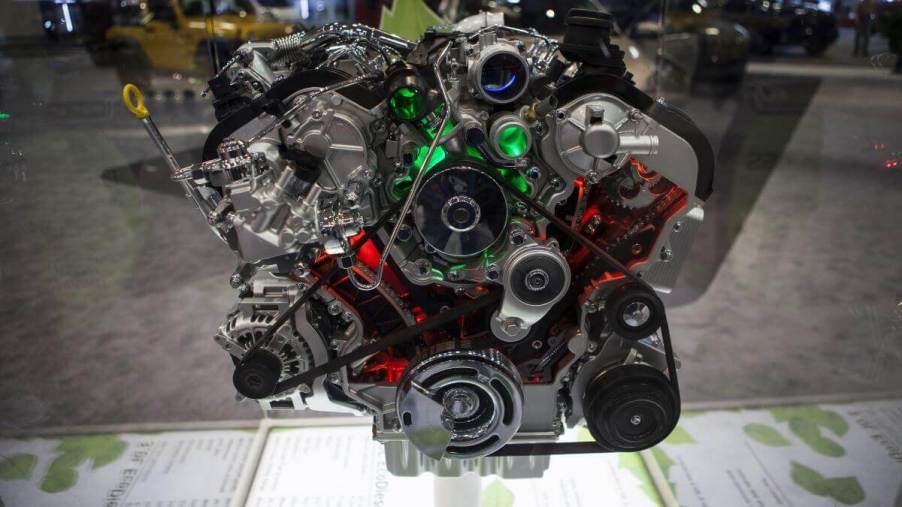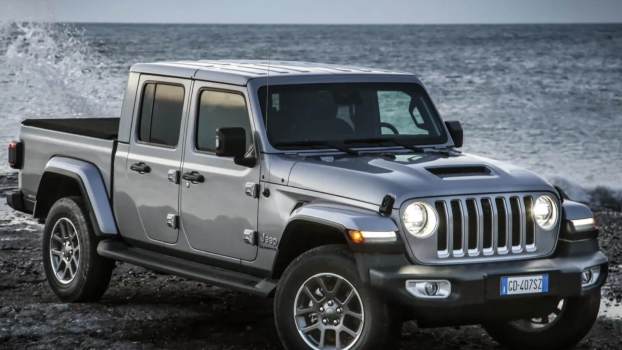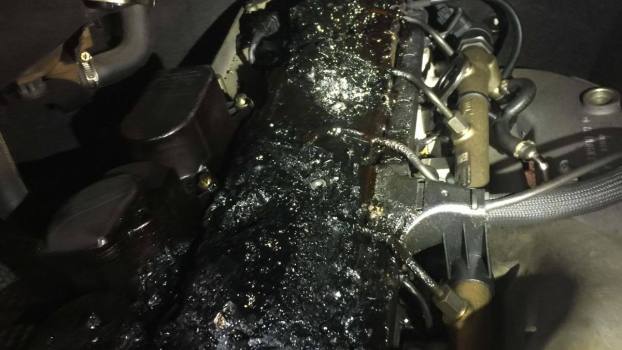
Common Ram 3.0L EcoDiesel V6 Problems You Should Know About
The 3.0-liter EcoDiesel V6 had no competition when Ram introduced it in 2014. However, this fuel-efficient diesel engine has since faced problems, partially due to the advertised 12,560-pound towing capacity. The added stress of extreme towing causes the engine to heat up, leading to multiple components failing. However, design changes, warranties, or recalls have resolved many of the EcoDiesel problems.
Most of the engine’s issues occur in the 2014 and 2015 models. That’s because EcoBoost saw revisions in 2016 that fixed many trouble spots. However, in 2020, Jeep dropped this diesel engine option. Ram made more tweaks that year but eventually retired it in 2022. Still, for owners, these EcoDiesel engines can last over 300,000.
Let’s look at the most common Ram EcoDiesel problems.
Ram engine oil cooler failure
Oil cooler failure is both a component problem and an engine wear problem. That’s because if the oil circulating through the engine is more than recommended, it causes extra wear on the internals. So, ultimately, it can shorten engine life.
The problem with oil cooler failure is that it begins mixing engine oil with coolant. Combining them causes main bearing failure and other internal issues. Though one or the other can occur once failure begins, most cases have resulted in oil leaking into the cooling system.
Of the two problems, this one is the lesser. If this issue starts, you’ll notice engine temps rising, leaks in the oil cooler, oil in the coolant, the opposite, or both, black exhaust, and poor performance. The good news is that Ram extended warranties for 2014 to 2016 model EcoDiesel engines.
Regardless, the OEM filter should be replaced because of its inferior design. Diesel IQ recommends an aftermarket version like the CFT Performance Oil Cooler. Additionally, flushing the cooling system should be done if there is oil contamination.
EcoDiesel EGR cooler failure
Another Ram 3.0L EcoDiesel problem involves cracks developing in the exhaust gas recirculation (EGR) cooler. An EGR cooler recirculates exhaust back into the intake system. There, it is burned off, decreasing emissions from the exhaust. These hot exhaust gasses get extremely hot. So, before they go back into the cylinder charge, the EGR cooler cools them down.
Cracks allow coolant to leak into the engine compartment, which can cause fires. Additionally, overly hot exhaust going back into the engine can cause overheating. It also leads to exhaust leaks from the hotter hot/cold cycling. The good news is that Ram issued a recall of 2014 to 2016 3.0-liter EcoDiesel engines to correct this issue.
Bosch fuel pump failure in FCA models
In June 2022, Ram issued a recall for Bosch CP4.2 fuel pumps self-destructing. That problem causes metal debris to enter the fuel system, which can clog injectors, fuel rails, and fuel lines, among other issues. The recall affected 2014 to 2019 Ram Classic 1500 pickups and 2014 to 2019 Jeep Grand Cherokee SUVs.
This issue is expensive to fix, with labor running anywhere from $3,000 to $6,000. Ensure any used Ram Classic or Grand Cherokee you might be interested in buying has the problem corrected. Additionally, the recall should cover other components in the fuel system beyond the pump that have been damaged due to the metal debris.
Exhaust coupler leaks in the Ram 3.0-liter EcoDiesel
The exhaust pipe leading from the turbocharger to the diesel particulate filter can develop leaks. That causes diesel fumes to enter the cabin. Luckily, a 2015 recall covers 2014 and 2015 EcoDiesel engines. However, it only affects trucks with two-wheel drive.
Camshaft gear or timing chain slippage
The degree of damage from this issue varies depending on how much the gear or timing chain slips. Minor slipping causes the timing to be off, resulting in poor engine performance and misfiring. However, if the cam gear slips completely, or in the more likely event, the timing chain slips, the result can be catastrophic.
When valves make contact with the pistons, bending and jamming are possible. Sometimes, the valves can even break apart the piston when contact occurs. Regardless, it’ll destroy the engine. The disastrous results have put this problem in the spotlight. However, this issue has likely affected only a few Ram EcoDiesel engines.





